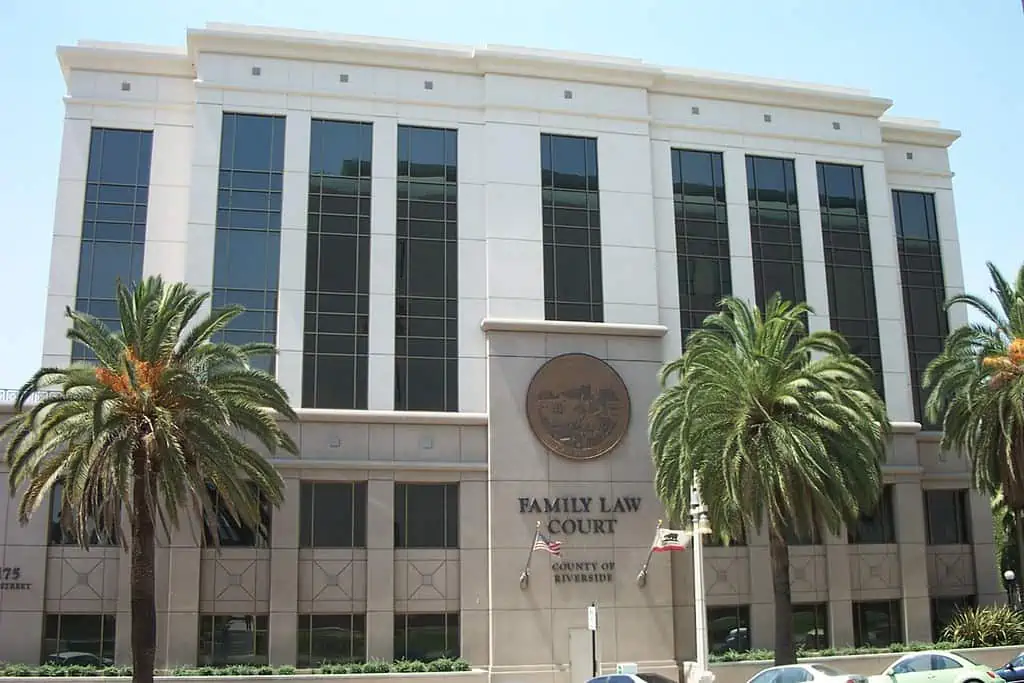If you’ve been injured on the job in Maryland, securing the best attorney for workers comp can significantly influence your experience and the outcome of your claim. The Maryland workers’ compensation process involves multiple steps and can be complex and time-consuming. Having an experienced legal professional by your side can make a crucial difference. This guide provides essential insights into workers’ compensation in Maryland, helping you understand your rights, the claims process, and the importance of selecting the right legal representation.
Toc
- 1. Understanding Your Rights in Workers’ Compensation
- 2. Navigating the Workers’ Compensation Claims Process
- 3. Related articles 01:
- 4. Selecting the Best Attorney for Workers Comp
- 5. Appealing a Denied Workers’ Compensation Claim
- 6. Employer Responsibilities and Preventing Workplace Accidents
- 7. Recent Trends in Maryland Workers’ Compensation Law
- 8. Conclusion
- 9. Related articles 02:
Understanding Your Rights in Workers’ Compensation

Navigating the workers’ compensation system in Maryland begins with a solid understanding of your rights under the law. The Maryland Workers’ Compensation Commission (MWCC) oversees these claims, providing guidelines on what is covered and the benefits available to injured workers.
What Injuries and Illnesses Are Covered?
In Maryland, workers’ compensation covers injuries that are accidental and arise out of and in the course of employment. This includes:
- Physical Injuries: Any injury sustained while performing job-related duties, such as slips, falls, or accidents involving machinery.
- Occupational Illnesses: Conditions that develop over time due to workplace exposure, such as repetitive stress injuries or illnesses caused by toxic substances.
It’s important to differentiate between injuries arising from a single incident and those due to cumulative trauma. For instance, carpal tunnel syndrome can develop from repetitive movements over time, which may also qualify for coverage. Establishing a direct causal link between the work and the injury or illness is crucial for a successful claim.
However, some conditions are not covered, including:
- Pre-existing injuries that have not been aggravated by the work environment.
- Self-inflicted injuries.
- Injuries resulting from intoxication or illegal drug use.
Understanding what qualifies can help you determine if you should pursue a claim.
Types of Benefits Available
Maryland’s workers’ compensation system provides several types of benefits, including:
- Medical Treatment: Coverage for medical expenses related to the injury, including doctor visits, surgeries, and rehabilitation.
- Wage Replacement: Compensation for lost wages during your recovery. Typically, this is about two-thirds of your average weekly wage.
- Disability Benefits: If your injury results in temporary or permanent disability, you may qualify for additional benefits based on the severity of your condition.
- Vocational Rehabilitation: Support to help you return to work or find new employment if you can no longer perform your previous job duties.
Understanding these benefits is crucial for maximizing your claim, which is where the expertise of the best workers’ compensation lawyers in Maryland becomes invaluable.
Filing a workers’ compensation claim involves several steps that must be followed accurately and promptly. Missing a deadline or failing to provide necessary documentation can jeopardize your claim.
Reporting Your Injury
The first step in the claims process is to report your injury to your employer. Maryland law requires that you notify your employer within 10 days of the incident. This timeline is crucial, as failure to report within this period can affect your eligibility for benefits.
When reporting, be sure to document the incident thoroughly. This includes:
- Writing down details of the incident.
- Gathering witness statements if possible.
- Taking photographs of the scene.
If your injury is classified as an occupational illness, you have up to one year to report it, but early reporting is always beneficial.
2. https://elizacosmetic.vn/mmoga-finding-the-best-lawyer-to-sue-a-company/
3. https://elizacosmetic.vn/mmoga-finding-the-best-federal-defense-attorney-a-guide-for-families/
Filing Your Claim with the MWCC
Once you have reported your injury, the next step is to file a claim with the Maryland Workers’ Compensation Commission. You must do this within 60 days of your injury. The claim can be submitted online or by completing the necessary forms and mailing them to the MWCC.
Ensure that all forms are filled out completely and accurately to avoid delays. The MWCC will then notify your employer and their insurance company about your claim. The insurer has 21 days to investigate and make a decision regarding your claim.
Medical Evaluations and Potential Disputes
In some cases, the employer’s insurer may require medical evaluations by physicians of their choice. These evaluations can sometimes lead to disputes regarding the nature and extent of your injuries. If you disagree with the findings, it is essential to consult with a Workers’ Comp lawyer in Maryland to help navigate these challenges.
Insurer’s Investigation and Decision
After your claim is filed, the insurance company will conduct an investigation. This process may include reviewing your medical records, speaking with witnesses, and assessing the circumstances of the injury.
Common reasons for claim denial include:
- Incomplete or inaccurate application.
- Disputes over the nature of the injury.
- Questions about whether the injury occurred during the course of employment.
Even with a strong case, insurance companies may attempt to minimize payouts. If your claim is denied, it’s critical to seek the assistance of a Workers’ Comp lawyer in Maryland to navigate the appeals process effectively.
Selecting the Best Attorney for Workers Comp
Choosing the right legal representation is vital to achieving a favorable outcome in your workers’ compensation claim. An experienced attorney can help you understand the complexities of the system, ensuring that you receive the benefits you deserve.
Why You Need a Lawyer
Statistics show that unrepresented workers often receive lower compensation than those who have legal representation. A qualified attorney can significantly improve your chances of a successful claim. They can assist with:
- Navigating the intricacies of the claims process.
- Gathering and presenting evidence to support your case.
- Negotiating with insurance companies on your behalf.
- Representing you in appeals if your claim is denied.
An attorney well-versed in Maryland workers’ compensation law will understand the nuances of the system, making them an invaluable asset. Their familiarity with the specific procedures and rulings of the Maryland Workers’ Compensation Commission is crucial in advocating for your rights.
Finding the Right Attorney
When searching for the best attorney for workers comp, consider the following:
- Experience: Look for a lawyer who specializes in workers’ compensation law and has a proven track record of success in handling similar cases.
- Client Reviews: Research client testimonials and reviews to gauge the attorney’s reputation and effectiveness.
- Consultation: Schedule consultations with potential attorneys to discuss your case and assess their communication style and approach.
During these meetings, ask questions such as:
- What is your experience with workers’ compensation claims?
- How will you communicate with me throughout the process?
- What are your fees, and how are they structured?
The answers to these questions can help you make an informed decision.
What to Expect from Your Attorney
Once you choose an attorney, they will take on several responsibilities, including:
- Guiding You Through the Process: Your lawyer will explain each step, from filing your claim to attending hearings if necessary.
- Managing Paperwork: They will handle all documentation, ensuring that deadlines are met and forms are filled out correctly.
- Fees and Payment: Most workers’ compensation attorneys work on a contingency fee basis, meaning they only get paid if you win your case. Be sure to discuss this upfront to avoid any surprises.
The attorney-client relationship is built on trust and communication, so it’s essential to choose someone you feel comfortable with.
Appealing a Denied Workers’ Compensation Claim
If your claim is denied, do not lose hope. The appeals process is available, and having a skilled attorney can greatly increase your chances of success.
Understanding the Appeals Process
The first step in the appeals process is to submit an Issues Form to the MWCC. This form outlines the reasons for your appeal, including any missing benefits or errors in the initial decision.
Once filed, a commissioner will review your case. You will have the opportunity to present evidence supporting your claim, and the employer may also present their reasons for denying the claim.
Escalating Your Appeal
If the commissioner’s decision is unfavorable, you can escalate your case to the Circuit Court. The legal standards used in these appeals can be complex, underscoring the need for competent legal representation throughout the process.
Tips for a Successful Appeal
To enhance your chances of a successful appeal, consider these strategies:
- Gather Evidence: Compile all relevant documentation, including medical records, witness statements, and any correspondence with the insurer.
- Organize Your Case: Present your case logically and clearly, ensuring that all evidence is easy to follow.
- Consult Your Attorney: Work closely with your attorney to develop a compelling argument and strategy for your appeal.
The appeals process can be lengthy and emotionally taxing, but with the right support, you can navigate it effectively.
Employer Responsibilities and Preventing Workplace Accidents
While the focus here is primarily on injured workers, it is worth noting employer responsibilities under Maryland workers’ compensation law.
Employer Obligations
Employers in Maryland are required to carry workers’ compensation insurance. This coverage is meant to protect employees in the event of work-related injuries. Key obligations include:
- Maintaining Insurance: Employers must ensure they have adequate coverage to meet legal requirements.
- Reporting Injuries: Employers are responsible for promptly reporting injuries to their insurance provider.
- Creating a Safe Work Environment: Employers must adhere to safety regulations and best practices to minimize workplace accidents.
Preventing Workplace Accidents
Employers can take several proactive steps to reduce the risk of workplace injuries, such as:
- Implementing Safety Programs: Regular safety training and awareness programs can help employees recognize and mitigate hazards.
- Conducting Regular Inspections: Routine checks of the work environment can identify potential risks before they lead to accidents.
- Encouraging Reporting: Creating a culture where employees feel comfortable reporting unsafe conditions can lead to timely interventions.
Recent Trends in Maryland Workers’ Compensation Law
In recent years, Maryland has seen changes in workers’ compensation laws that affect both employees and employers. For instance, legislation has been introduced to increase the benefits available to workers, such as raising the maximum weekly wage replacement amount. Furthermore, recent case law has clarified eligibility criteria for certain conditions, making it essential for both employees and employers to stay informed about these developments.
Conclusion
Understanding your rights and the workers’ compensation process in Maryland is crucial if you’ve been injured at work. The best attorney for workers comp can guide you through this complex system, ensuring that you receive the benefits you deserve. Do not hesitate to seek legal counsel; your future financial stability may depend on it. By taking the right steps and choosing the right legal representation, you can focus on your recovery while ensuring your rights are protected. Whether you are dealing with the initial claim process or facing an appeal, having the best workers’ compensation lawyers in Maryland by your side can make all the difference.
3. https://elizacosmetic.vn/mmoga-finding-the-best-lawyer-to-sue-a-company/
5. https://elizacosmetic.vn/mmoga-finding-the-best-federal-defense-attorney-a-guide-for-families/










